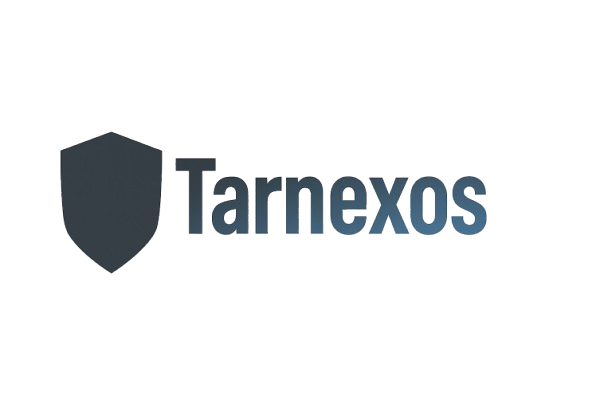Regenerative medicine stands at the frontier of healthcare innovation, promising to repair, replace, and regenerate damaged tissues and organs. Yet with such transformative potential comes profound ethical responsibility.
As clinical trials advance toward therapies that could revolutionize treatment paradigms, building public trust through transparent ethical frameworks and robust policy development has never been more critical. The intersection of cutting-edge science, patient vulnerability, and societal expectations creates a complex landscape that demands careful navigation by researchers, regulators, healthcare providers, and policymakers alike.
🔬 The Ethical Landscape of Regenerative Medicine
Regenerative medicine encompasses diverse approaches including stem cell therapies, tissue engineering, gene editing, and immunotherapies. Each modality presents unique ethical considerations that extend beyond traditional clinical trial frameworks. The participatory nature of these trials often involves vulnerable populations desperate for treatment options when conventional medicine has failed.
The ethical challenges begin with the foundational question of informed consent. Patients enrolled in regenerative medicine trials frequently face uncertain outcomes, potential long-term effects that remain unknown, and the psychological weight of participating in experimental treatments. Unlike conventional drug trials with established safety profiles, regenerative approaches may involve irreversible biological changes, making the consent process exponentially more complex.
Balancing Hope and Realistic Expectations
One of the most delicate ethical tightropes involves managing patient expectations. The term “regenerative medicine” itself carries powerful connotations of healing and restoration that can inflate hopes beyond what current science can deliver. Researchers and clinicians must communicate both the promise and the limitations honestly, avoiding therapeutic misconception while maintaining appropriate optimism.
Media coverage and direct-to-consumer marketing of unproven stem cell treatments have created an environment where patients may struggle to distinguish between rigorous clinical trials and unregulated medical tourism. This confusion undermines trust in legitimate research and exposes vulnerable individuals to potential exploitation and harm.
📋 Regulatory Frameworks and Policy Development
Effective regulatory oversight serves as the backbone of ethical regenerative medicine trials. Government agencies worldwide face the challenge of creating policies that protect participants while not stifling innovation. The FDA in the United States, the EMA in Europe, and similar bodies globally have developed specialized pathways for regenerative medicine products, recognizing their unique characteristics.
These regulatory frameworks must address several key considerations:
- Classification systems that appropriately categorize regenerative medicine products
- Risk-based approaches that scale oversight to potential harm levels
- Manufacturing standards for biological products with inherent variability
- Long-term follow-up requirements to monitor delayed effects
- Adaptive trial designs that accommodate the learning curve of emerging technologies
- International harmonization to facilitate global research collaboration
The Challenge of Adaptive Regulation
Science evolves faster than policy in the regenerative medicine field. Regulators must balance the need for comprehensive safety data with the imperative to make promising therapies available to patients with life-threatening conditions. Expedited approval pathways, conditional authorizations, and breakthrough therapy designations represent attempts to strike this balance, but each carries risks of premature commercialization.
Policy development must also address the growing issue of unproven interventions marketed outside regulatory frameworks. Enforcement actions, public education campaigns, and international cooperation are essential components of protecting patients while allowing legitimate innovation to flourish.
🤝 Building Trust Through Transparency
Trust in regenerative medicine trials depends fundamentally on transparency at every level. This includes pre-registration of trials, public disclosure of results regardless of outcome, open communication about adverse events, and honest acknowledgment of uncertainties and knowledge gaps.
The movement toward open science in regenerative medicine research represents a significant trust-building measure. When researchers share protocols, data, and methodologies openly, it enables independent verification, reduces duplication of efforts, and demonstrates commitment to scientific integrity over commercial interests.
Patient and Public Engagement
Meaningful engagement with patients and the broader public throughout the research process strengthens both ethical validity and social trust. Patient advisory boards, community consultation, and participatory research models ensure that the perspectives of those most affected by regenerative medicine inform trial design and implementation.
This engagement extends beyond individual trial participation to include input on research priorities, acceptable risk levels, and resource allocation decisions. When patients and public representatives help shape the research agenda, the resulting trials better reflect societal values and needs.
💡 Ethical Considerations in Specific Applications
Different regenerative medicine applications present distinct ethical profiles that require tailored approaches to policy and practice.
Stem Cell Research and Therapy
Embryonic stem cell research continues to raise ethical questions related to the moral status of embryos, despite the development of induced pluripotent stem cells that sidestep these concerns. Meanwhile, the clinical application of stem cells involves questions about appropriate indications, optimal sourcing methods, and acceptable modification techniques.
Autologous stem cell therapies, using a patient’s own cells, present different risk profiles than allogeneic approaches using donor cells. Policy frameworks must distinguish between these approaches while addressing the proliferation of clinics offering unproven stem cell treatments that exploit regulatory gray areas.
Gene Editing Technologies
CRISPR and other gene editing tools have transformed regenerative medicine possibilities, enabling precise corrections of genetic defects. However, these technologies raise profound questions about germline modifications, enhancement versus treatment distinctions, and equitable access to transformative but expensive interventions.
International policy consensus remains elusive, with different jurisdictions taking varying approaches to permissible applications. The 2018 controversy surrounding gene-edited babies in China highlighted the urgent need for global ethical standards and enforcement mechanisms.
Tissue Engineering and Organ Regeneration
The development of bioengineered organs and tissues offers hope to patients facing transplant waiting lists but involves complex questions about organ allocation priorities, acceptable xenotransplantation approaches, and the implications of commercially produced organs for healthcare equity.
🌍 Global Perspectives and Health Equity
Regenerative medicine trials increasingly occur in global contexts, raising important questions about research ethics in resource-limited settings, benefit-sharing arrangements, and post-trial access to successful interventions.
The concentration of regenerative medicine research and clinical capacity in high-income countries threatens to exacerbate global health inequities. Policy frameworks must address how to ensure that populations who participate in research can access resulting therapies, and how to build local capacity in lower-resource settings.
Addressing Disparities in Access
The high costs associated with regenerative medicine therapies create significant access barriers even in wealthy nations. Gene therapies approved in recent years carry price tags in the hundreds of thousands or millions of dollars, raising questions about sustainability and justice in healthcare systems.
Policy solutions might include value-based pricing models, public funding for particularly promising interventions, and innovation in manufacturing processes to reduce costs. However, balancing incentives for innovation with affordability remains an ongoing challenge requiring creative policy thinking.
🔐 Data Privacy and Biological Material Governance
Regenerative medicine trials generate vast amounts of biological samples and genetic data, creating significant privacy and governance challenges. Participants must understand how their biological materials will be used, stored, and potentially shared, including for secondary research purposes or commercial development.
Policy frameworks increasingly recognize that consent for biological material use should be dynamic, allowing participants to modify permissions as circumstances and understanding evolve. Blockchain technologies and other digital solutions are being explored to give individuals greater control over their biological data.
Intellectual Property Considerations
The patenting of biological materials, genetic sequences, and regenerative medicine techniques creates tensions between intellectual property rights and research access. While patents incentivize innovation, overly broad patents can impede follow-on research and limit therapeutic applications.
Finding appropriate balance requires policy attention to patent scope, licensing practices, and exceptions for research use. Some researchers advocate for open-source approaches to regenerative medicine, sharing innovations freely to accelerate progress.
📊 Measuring Success and Accountability
Trust in regenerative medicine trials depends on clear accountability mechanisms and transparent measurement of outcomes. This extends beyond traditional clinical endpoints to include patient-reported outcomes, quality of life measures, and long-term safety surveillance.
| Accountability Dimension | Key Elements | Implementation Challenges |
|---|---|---|
| Scientific Integrity | Peer review, replication studies, data sharing | Publication bias, resource constraints |
| Regulatory Compliance | Protocol adherence, adverse event reporting | International coordination, evolving standards |
| Patient Safety | Monitoring systems, long-term follow-up | Lost-to-follow-up rates, resource intensity |
| Ethical Oversight | Ethics committee review, consent processes | Variable standards, capacity limitations |
The Role of Independent Monitoring
Independent data safety monitoring boards provide crucial oversight for regenerative medicine trials, offering objective assessment of emerging safety signals and benefit-risk profiles. Their recommendations can lead to trial modifications, early terminations, or expansions based on accumulating evidence.
The independence of these bodies from commercial interests and the expertise they bring to interpreting complex biological data make them essential trust-building elements in the regenerative medicine ecosystem.
🎯 Education and Professional Development
Building trust requires that all stakeholders understand the ethical dimensions of regenerative medicine. This means comprehensive education for researchers in research ethics and communication, training for ethics committee members in the specific challenges of regenerative medicine, and public education to enhance health literacy.
Medical schools and graduate programs increasingly incorporate regenerative medicine ethics into curricula, recognizing that future healthcare professionals will need to navigate these complex issues. Continuing education for practicing clinicians ensures they can guide patients appropriately regarding participation in trials and access to emerging therapies.
Combating Misinformation
The proliferation of misleading information about regenerative medicine, particularly stem cell treatments, undermines public trust and patient safety. Healthcare providers, researchers, and regulatory agencies must actively engage in public education, providing accessible, accurate information about the current state of science.
Professional societies play important roles in setting standards, issuing position statements on controversial practices, and providing resources for both professionals and patients. Collaboration with patient advocacy organizations amplifies these messages and ensures they reach affected communities.
🚀 Looking Forward: Policy Innovation for Emerging Challenges
As regenerative medicine continues to advance, new ethical and policy challenges will inevitably emerge. Artificial intelligence integration in trial design and outcome prediction, the potential for enhancement applications beyond disease treatment, and the implications of increasingly personalized medicine all require anticipatory policy thinking.
Adaptive governance models that can evolve alongside scientific progress offer promise for maintaining appropriate oversight without stifling innovation. These models emphasize ongoing dialogue among stakeholders, regular policy review and updating, and mechanisms for rapidly responding to emerging ethical concerns.
International Collaboration and Harmonization
The global nature of regenerative medicine research necessitates international cooperation on ethical standards and regulatory approaches. While respecting cultural differences and national sovereignty, developing common frameworks for core ethical principles and safety standards would facilitate research collaboration and protect participants regardless of location.
Organizations like the International Society for Stem Cell Research and the World Health Organization play vital roles in convening stakeholders and developing consensus guidance that can inform national policies while promoting consistency across borders.

🌟 Cultivating a Culture of Ethical Excellence
Ultimately, building trust in regenerative medicine trials requires more than compliance with regulations and ethical guidelines. It demands cultivating a research culture that prioritizes integrity, transparency, and patient welfare above all else. This culture emerges from leadership commitment, institutional values, and individual researcher dedication to ethical excellence.
Incentive structures within academic medicine and industry must reward ethical conduct as highly as scientific productivity. Recognition for exemplary ethical practices, resources to support robust consent processes and patient engagement, and protection for whistleblowers who identify ethical concerns all contribute to this culture.
The promise of regenerative medicine to transform healthcare and alleviate suffering is immense. Realizing this promise requires not only scientific innovation but also ethical wisdom and policy frameworks that earn and maintain public trust. By prioritizing transparency, engaging stakeholders meaningfully, adapting regulations thoughtfully, and maintaining unwavering commitment to participant welfare, the regenerative medicine community can build the trust foundation necessary for a healthier future.
As trials advance and therapies emerge from the laboratory to the clinic, the decisions made today about ethical standards and policy frameworks will shape regenerative medicine for decades to come. The responsibility to get these decisions right—to balance innovation with safety, hope with realism, and progress with equity—rests with all of us who participate in this transformative field. Through collaborative effort, honest dialogue, and steadfast ethical commitment, regenerative medicine can fulfill its potential while honoring the trust placed in it by patients, society, and future generations who will benefit from today’s careful stewardship of tomorrow’s treatments. 🌱
Toni Santos is a biomedical researcher and genomic engineer specializing in the study of CRISPR-based gene editing systems, precision genomic therapies, and the molecular architectures embedded in regenerative tissue design. Through an interdisciplinary and innovation-focused lens, Toni investigates how humanity has harnessed genetic code, cellular programming, and molecular assembly — across clinical applications, synthetic organisms, and engineered tissues. His work is grounded in a fascination with genomes not only as biological blueprints, but as editable substrates of therapeutic potential. From CRISPR therapeutic applications to synthetic cells and tissue scaffold engineering, Toni uncovers the molecular and design principles through which scientists reshape biology at the genomic and cellular level. With a background in genomic medicine and synthetic biology, Toni blends computational genomics with experimental bioengineering to reveal how gene editing can correct disease, reprogram function, and construct living tissue. As the creative mind behind Nuvtrox, Toni curates illustrated genomic pathways, synthetic biology prototypes, and engineering methodologies that advance the precision control of genes, cells, and regenerative materials. His work is a tribute to: The transformative potential of CRISPR Gene Editing Applications The clinical promise of Genomic Medicine and Precision Therapy The design innovations of Synthetic Biology Systems The regenerative architecture of Tissue Engineering and Cellular Scaffolds Whether you're a genomic clinician, synthetic biologist, or curious explorer of engineered biological systems, Toni invites you to explore the cutting edge of gene editing and tissue design — one base pair, one cell, one scaffold at a time.




